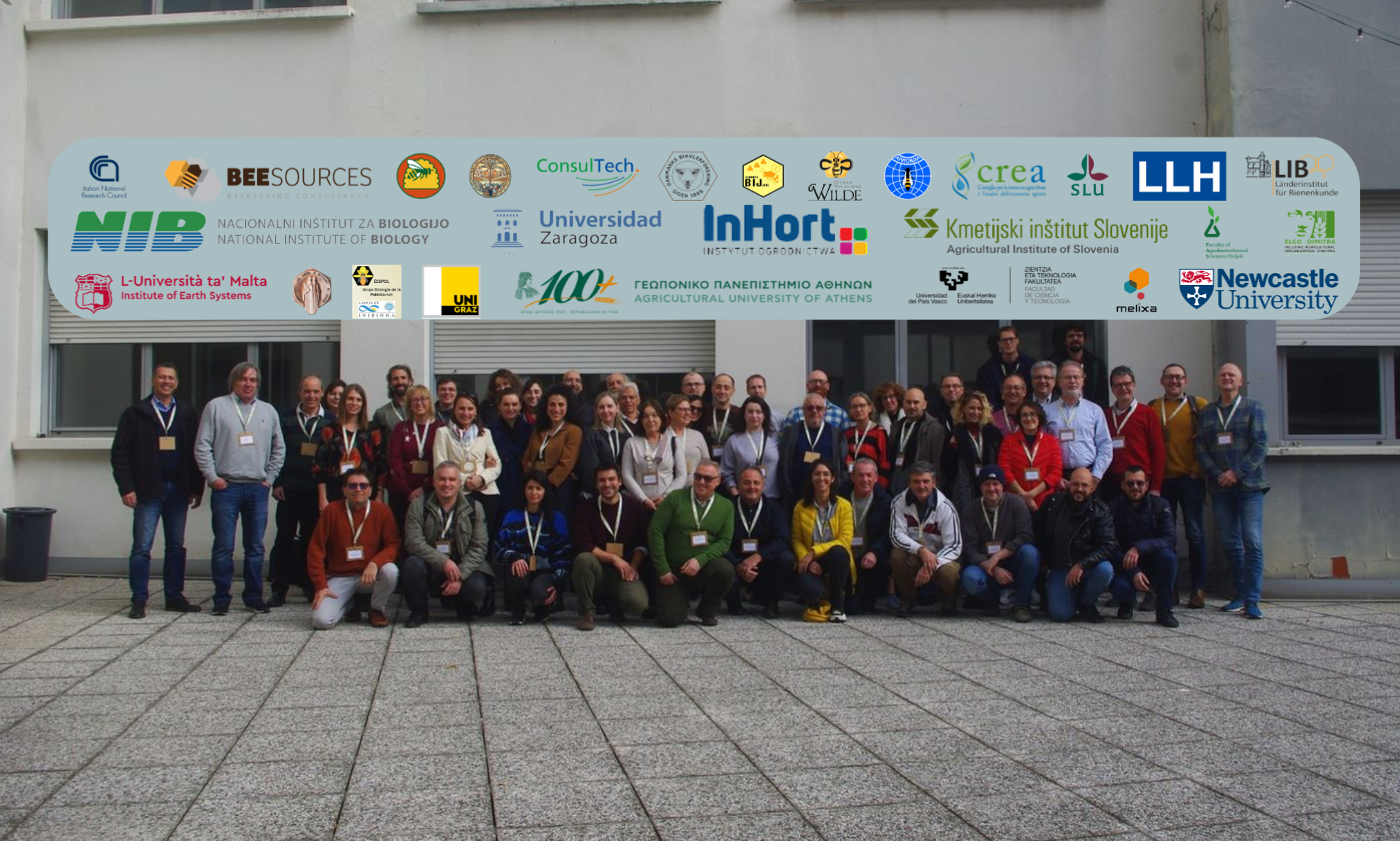May 2025
BeeGuards: Exciting European Research Project Set to Commence
After a competitive two-stage evaluation process, the BeeGuards project was selected as one of two research projects for the “Resilient beekeeping” call funded under the Horizon Europe framework (HORIZON-CL6-2022-BIODIV-02). The BeeGuards consortium, coordinated by Dr Cecilia Costa from the CREA Research Centre Agriculture and Environment (Italy), consists of 27 partners including scientists, beekeepers and beekeeping associations, consulting and technology companies, from 16 countries. The 4-year project starting in October 2023, aims to provide sustainable management practices, novel breeding strategies, and digital and forecasting tools that will allow the beekeeping sector to adapt to a changing environment. In the field, BeeGuards will perform studies in 11 countries in Europe and beyond, applying innovative threshold-based management practices, using hives equipped with digital sensors. This will support the work of beekeepers by providing guidelines for the adaptation of beekeeping practices to present and future challenges. BeeGuards will perform complementary immunological, behavioral, pathological, genomic and ecological studies that will serve to elucidate how management, climate and environment act on honeybees and other pollinators. Beekeepers, farmers and citizens will be involved via a WikiBeedia and by citizen-science and carbon footprint studies to ensure that research findings are directly translated into useful/good practices for end users.
Added local description of institution’s involvement
- CREA. The CREA Research Centre for Agriculture and Environment, as well as coordinating the project, is involved in the field experiments on colony management and on implementation of the innovative breeding scheme; furthermore, CREA leads the study of competition between managed honey bees and wild pollinators. The IT team of the CREA Research Centre for Engineering and Agro-Food Processing is co-leading the work package dedicated to digitalization of bee monitoring and modelling the effects of management and environment on bee health and development, as well as providing cloud infrastructure and a bridge towards towards EU open data platforms.
- BSOUR. The partner BeeSources based in Bologna (Italy) is one of the SMEs of the project involved mainly in breeding related field tasks and dissemination of the project’s outcomes. The owner, Dr. Raffaele Dall’Olio will be closely supporting the WP9 leader in securing a timely and efficient communication of the project’s progress, while also organizing and setting up WP2 protocols and activities on innovative breeding, also including the field work required in performance testing apiaries and mating stations.
- CNR. The research group “Ecosystem Services of Pollinators for the Development of Ecological and Sustainable Agriculture – IPSP4Pollinators” at the Institute for Sustainable Plant Protection of the Italian National Research Council (CNR-IPSP) is one of the major partners of the project, involved in investigating the influence of abiotic factors on honey bee immunity & physiology. Dr Gennaro Di Prisco will lead a work package on understanding how immunity and nutrition affect honey bee resilience, where immunophysiological and behavioural mechanisms of adaptions to abiotic stressors, such as nutritional landscape, land use, temperature, humidity, and colony management will be studied in the field and in the lab.
- DBF. The Danish beekeeper’s association represents 6.500 beekeepers in Denmark. We participate in others consortium, where the importance of the stakeholders is recognized. Our involvement is on the dissemination side, like homepage, social media, podcast etc. Therefore we lead the WP09 in close cooperation with BeeSources (Italy) and Unigraz (Austria), where we focus on Press release, www.BeeGuards.eu, Stakeholders’ contact register, Outreach strategy, www.WikiBEEdia.eu, Practice abstracts, Report on resilient colony and management practices.
- UNIZAR. The Biology, Physiology and Reproductive Technologies (BIOFITER) research group of the University of Zaragoza (UNIZAR) is one of the partners of the project, mainly involved in the creation of germplasm banks in honey bees. Researcher Dr. Jesús Yániz will lead the formation of semen banks of 6 subspecies of bees in 5 countries, in addition to developing new cryopreservation methods for semen and embryos in this species. These germplasm banks will allow us to recover the biodiversity lost for various reasons and conserve the valuable genetic resources that are generated as a result of this and other projects.
- UNEW. The Modelling Evidence and Policy Research Team at Newcastle University is a major partner of the project. Professors Giles Budge and Steve Rushton and a new postdoc will together lead a workpackage entitled “Understanding climate as a driver of Parasites & Pathogens and mitigating their impact”. Working closely with project partners form across Europe and beyond, this project will contribute to our understanding of bee health in the face of climate change.
- CT. ConsulTech supported the consortium in all phases of the application process and contract negotiations with the EU. During project implementation, ConsulTech is responsible for project management and supports grant management as well as dissemination and communication activities.

